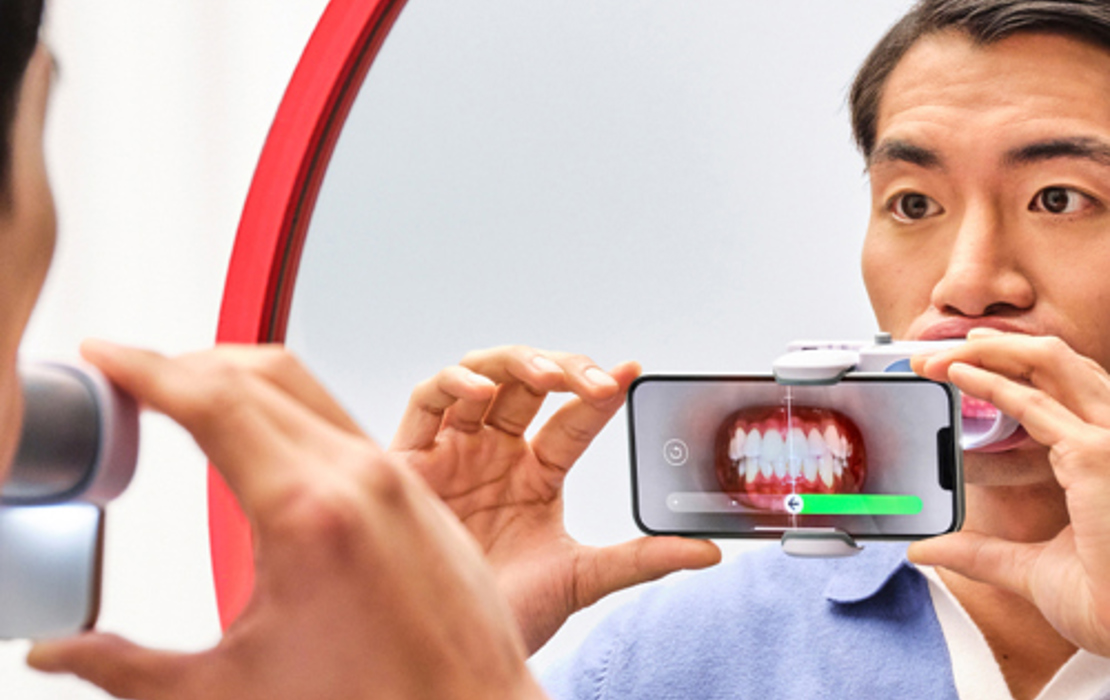10 Under 10: Texas periodontist carves out shareable life lessons from early struggles
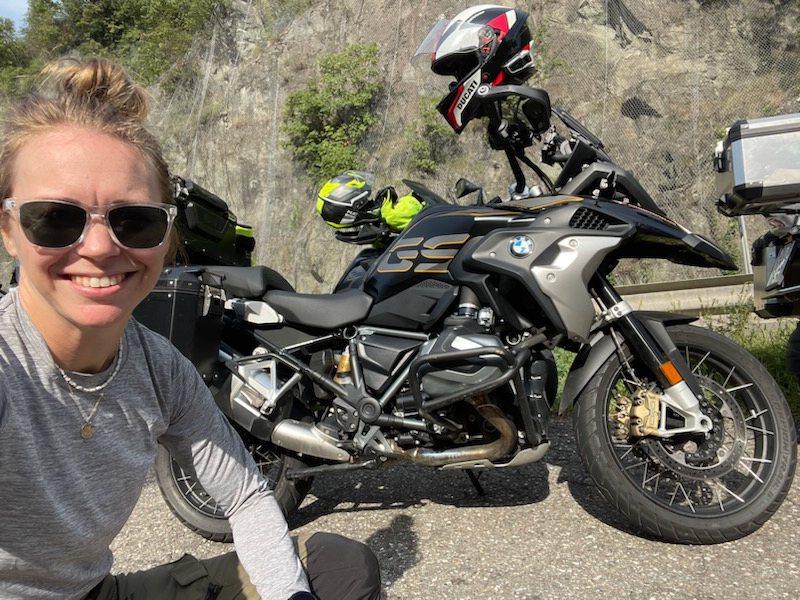
Whether it involves the periphery of a track or open road, the blades of ice hockey skates or the sharp end of a scalpel, Stephanie R. Ganter, D.D.S., has somehow found her way to life on the edge. Professionally or personally, she finds a way to make the cut.
She is a periodontist and oral surgeon who co-owns an innovative private practice in Garland, Texas, that focuses on both periodontics and oral surgery. Her professional accomplishments earned her recognition as a 2023 ADA 10 Under 10 Award winner.
Growing up in Texas, Dr. Ganter demonstrated the daring, curiosity and athleticism that would be hallmarks of later impassioned pursuits.
“I came from humble beginnings,” she said. “My mom and my dad didn’t have a lot of money. My Dad’s one of 12 brothers and sisters. My mom’s one of three. So, it’s like this big Catholic family living in Dallas. We moved to McKinney because there was land. My dad wanted to have pigeons and a farm, and I started to look at how I could make the varsity soccer team.”
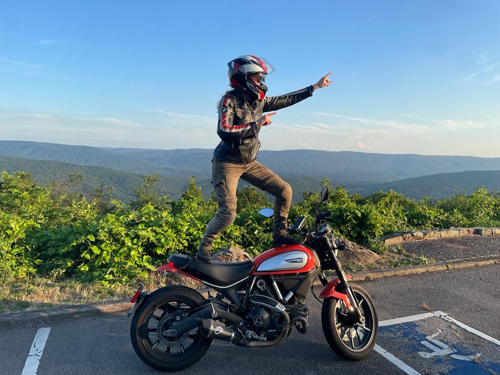
Not only did she earn a spot on the varsity soccer team as a freshman, but she also earned a starter spot as a sophomore. The team won state champion honors during her sophomore year as well. The achievement led to Dr. Ganter thinking she might go to college and play soccer. But her athleticism was full of surprises.
“It turned out I was better at running,” she said. “There are no runners in my family. I’m not quite sure how this worked out. If you look at me, I’m not a runner’s physique. I’m not sure exactly why or how, but I started to run a lot. I would run 40- or 50-mile weeks in high school, and then by the time I was in college, I was at about a hundred-mile weeks. It’s a lot.”
As much as she came to love — maybe even obsess over — running, it ran its course, eventually. But first, it exacted a major toll on her physically and emotionally. She had to let it go after her doctor told her what she was risking.
“I was winning races, and I was doing really well and getting a lot of attention from coaches and teachers and whatnot. But all of a sudden my body broke,” Dr. Ganter said. “I went to the doctor one day. I was getting stress fracture after stress fracture, and the doc was like, ‘OK, we did a bone scan and what we looked for was wherever it lights up; that’s where you have less density than we’d like.’ He goes, ‘Unfortunately for you, your whole lower half lights up like a Christmas tree.’ My skeleton looked like someone who had osteopenia, but I was 20.”
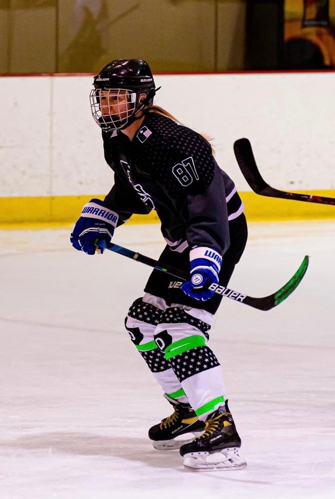
The physical impact on her body dashed any hopes of an athletic career track. Perhaps fortuitously, though, while growing up in McKinney and before entering college, Dr. Ganter had found ways to explore her interest in science, including surgery. Her parents had bought a science kit that she put to investigative use in the case of a predator invading her dad’s pigeon coop when she was 15.
“Nobody believed me that this snake had eaten the bird,” she said. “My dad was trying to free the snake into the weeds, but the snake kept coming back. So, my dad had to kill it. Then I got to take my science kit and open the belly of the snake. I grabbed the pigeon and I said, ‘See!’”
In 2016, Dr. Ganter graduated from Texas A&M University College of Dentistry. She also completed her periodontal and implant surgery residency there in 2019. The previous years of physical and emotional ordeal as an athlete lent her perspective on coping with stresses while pursuing goals. She continues to draw on these lessons in her dental career and shares them as cautionary tales when providing perspective to younger dentists coping with myriad stresses.
“When you get into dental school, it is really tough emotionally and physically. It’s a beatdown,” she said. “What you find now in dental school is there are a lot of poor and negative coping mechanisms. When I talk with faculty about wellness and the health and well-being of some of their students, we talk about students really leaning into alcohol and drugs — and these are dental students. These are students that are supposed to be very professional, and it’s sad.”
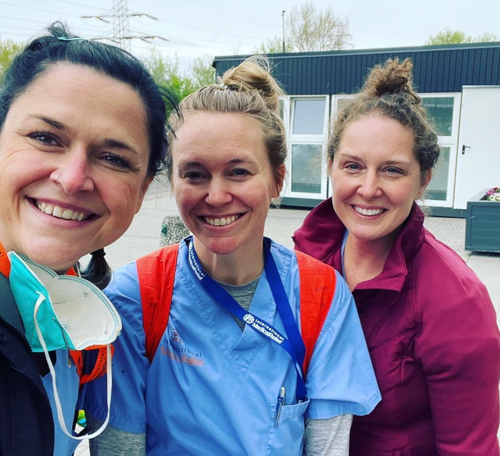
Not only does Dr. Ganter want to help students learn better coping skills, but she also seeks to help shatter paradigms supporting gender imbalances in oral surgery, where improvements toward representation come in trickles. She still recalls brazen slights and fights to be included.
“When I got to residency, it was kind of tough,” she said. “The first time was kind of a real-world situation. I was left off the group chat because I’m a female. It was crazy. That’s kind of how surgical residencies are. They’re very male dominated. It’s changing, of course.”
To hone her talents and abilities, Dr. Ganter completed an international surgical leadership program through Harvard Medical School, where she delivered a one-year capstone project on access-to-care issues in dentistry.
“I got to meet people from all over the world,” she said. “I got to interface with a lot of surgeons, both men and women. The coolest thing about this Harvard Surgical Leadership Program was that this group of people from all over the world actually voted me class speaker, and it was awesome. It’s so cool to have people from all over the world understand you in a way that they want you to speak on their behalf. That was actually a moment of great pride for me.”
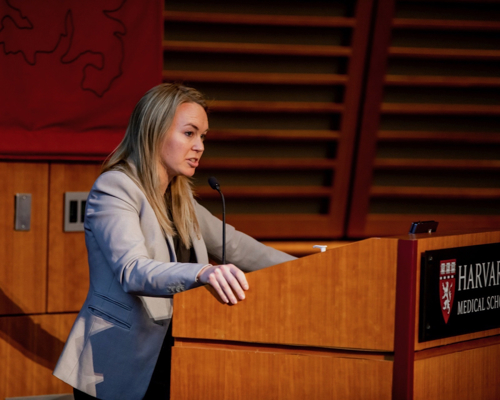
Helping fellow dentists with career tactics to navigate the field is also an impassioned pastime. Dr. Ganter and Robert G. McNeill, D.D.S., M.D., her practice partner, parlayed prompts from a study club into another kind of partnership — a YouTube channel called Between Two Teeth that seeks to provide cutting-edge content for a global dental audience. Dr. Ganter co-hosts with Dr. McNeill, also a surgical periodontist.
The format is a bit of a sendup of actor/comedian Zach Galifianakis’ similarly titled sketch show, “Between Two Ferns,” and the aim is to strike a balance between “some pretty deep topics,” such as discussing wellness for dental practitioners, while putting a global dental audience in stitches — from laughter.
“We wanted this channel that embodied wellness that promoted a sense of community,” Dr. Ganter said. “We love humor, so we wanted to make it kind of funny and quirky, and we love Zach Galifianakis. There are so many awkward moments in it. Just buckle up, depending on which episode you get into; it’s a wide range.”
She especially wants new dentists to understand the significance of wellness as foundational in their approach to their careers — to know that depression and burnout aren’t a foregone conclusion in demanding health care professions. Her life exemplifies the balance possible. She loves her hobbies and feeds them, including riding her motorcycle, playing ice hockey and traveling.
From Dr. Ganter’s perspective, approaching a dental career with wellness in mind is a concept worthy of ongoing examination, and one can depart from the norm if that works better. She shared that she prefers the more accommodating European disposition toward work-life balance and cited watching her parents work too hard as a reason for this approach.
“I saw them just work themselves to death,” Dr. Ganter said. “I think Americans live to work. Europeans work to live. … I know what it’s like to have two full-time jobs at once with cross-country and also school. I don’t want to work that hard again.
“I think it’s better to have balance in life. The best parts of life are found in the relationship and the adventure. I want to work with dentistry for sure and I want to treat patients, and I don’t have to work six days a week to feel good about myself.”


